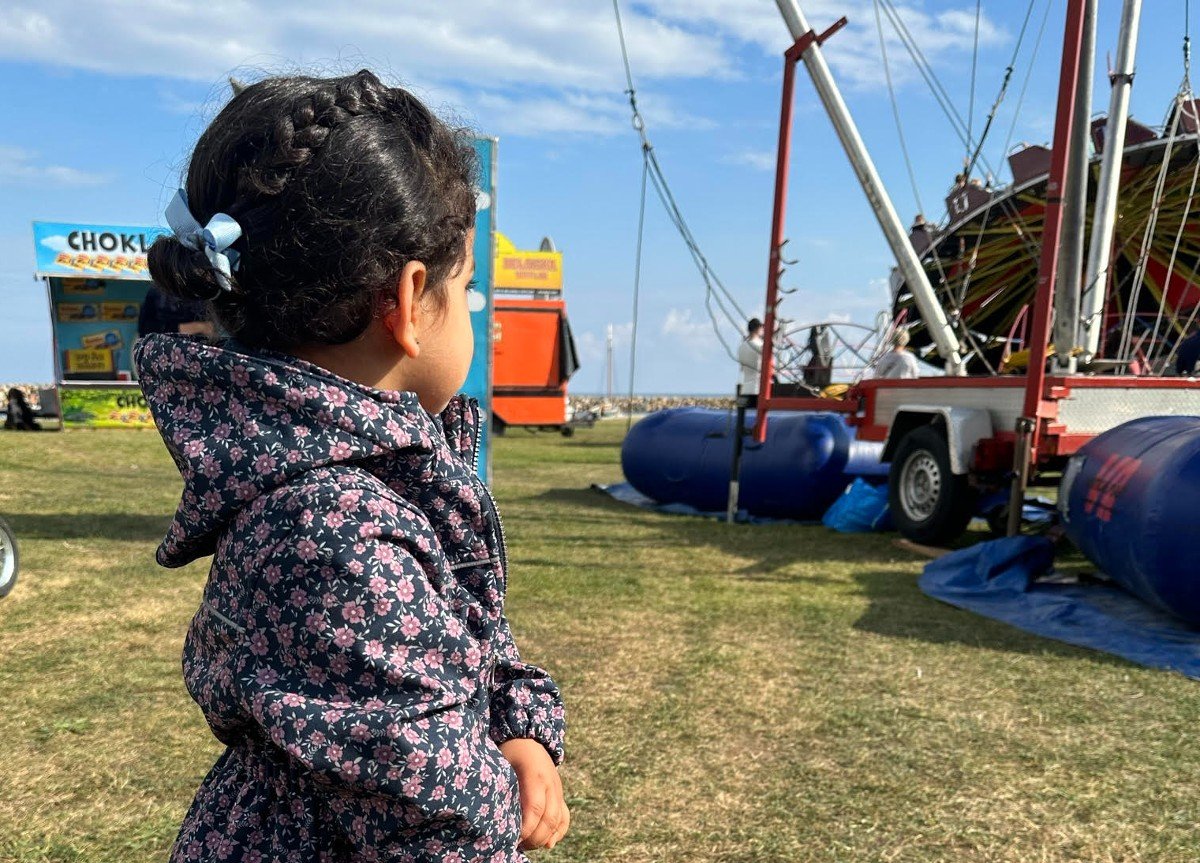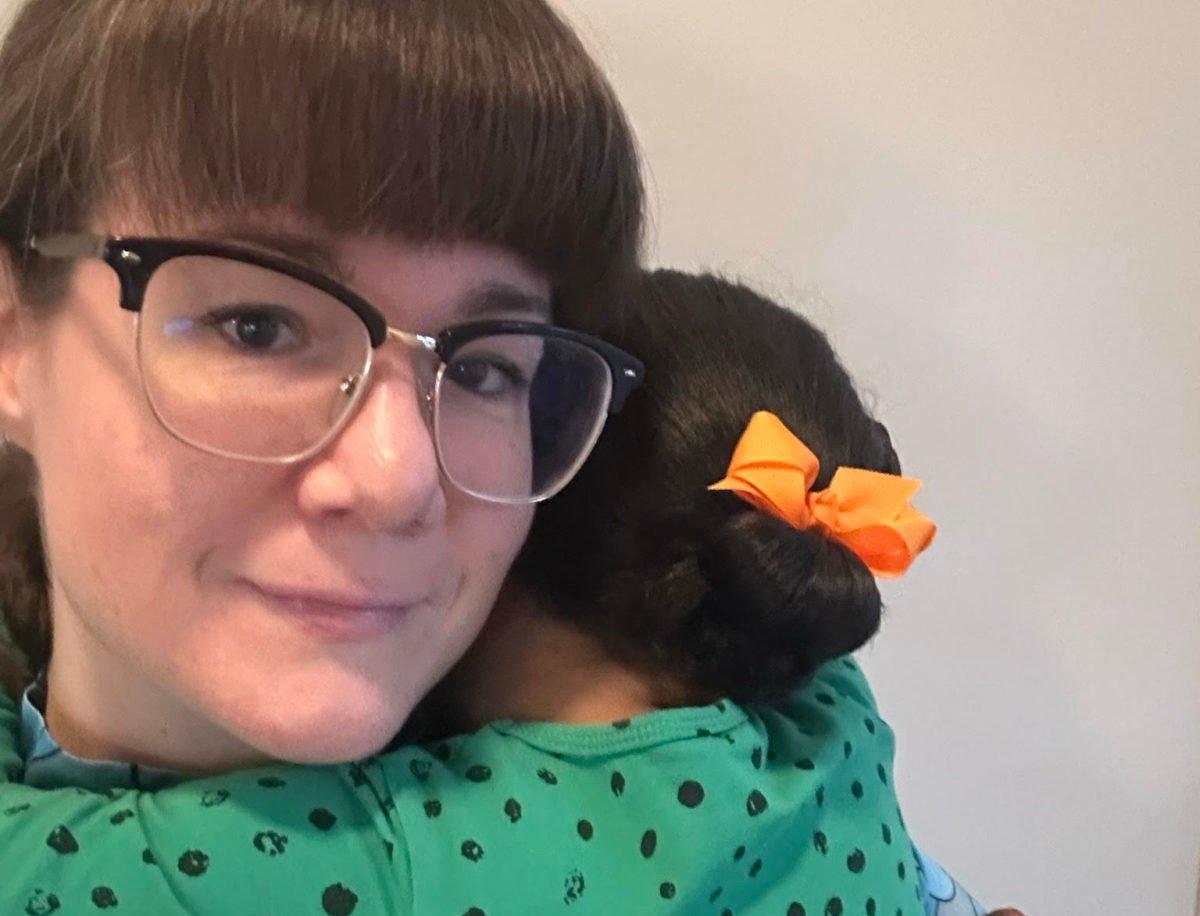Nella, as she is being called in the Swedish media, is due to be deported from Sweden from February 27th, with her only chance of staying in Sweden being if a last-minute block, or verkställighetshinder, is imposed and the Migration Agency then decides to issue her a temporary residency permit.
If the Migration Agency refuses to do this, the three-year-old could be on a plane to Pakistan within days.
"I'm so worried about what will happen to her if she gets deported there. I think she would end up in really bad way," Åkerberg told The Local.
"They'll be sending her to a country where she wasn't born, together with biological parents who can't take care of her. And Nella also has special needs. She needs frequent contact with healthcare professionals, and that sort of healthcare doesn't exist in Pakistan."
Nella was taken from her parents when she was just 11 months old, after a court concluded that they were not able to take care of her properly, and her case has generated a lot of coverage in Sweden, with a protest last week in their home town of Simrishamn drawing a crowd of supporters.

Since she was appointed foster mother, Åkerberg has been Nella's only carer in what is her first and only fostering role, with the two sharing a house in Simrishamn, southern Sweden.
"When Nella came to me, I did it with the idea that I would be her mum," Åkersberg said. "She is everything to me. It's just me, her and our dog, and she calls me 'mamma' too. When she came to me, social services said she would stay with me for her whole upbringing."
But now that Nella's biological father's work permit has expired and both he and his wife are to return to Pakistan, they want to take Nella with them. In mid-February, she was taken by social services and placed in a special care facility in Lund together with her biological parents so that they can reassess whether they are capable of looking after her.
"It's extremely hard, both for me and her," Åkerberg said. "I miss her something terrible and I can tell that Nella doesn't feel happy in this examination facility, where she is subjected to her biological parents' inability to care for her."
READ ALSO:
- Family fights to stop Sween deporting grandmother
- Gothenburg firefighter faces deportation to Iran: 'I can't live there for one second'
Nella was taken into care after her pediatric nurse reported the parents because she was not gaining weight as she should or developing socially and intellectually. In an appeal, which they lost, the parents put her slow social and intellectual development down to an attack of meningitis she had as an infant and her slow gain in bodyweight to gaining a lot of teeth at the same time.
In the appeal court's ruling it said that the parents were unsafe, leaving Nella unsupervised on the changing table and not properly doing up child seatbelts in the car when they travelled, and it also said that they did not provide proper nutrition or stimulation to the child.
"The parents are judged to lack any potential to change, so placement in a foster home is the best way to ensure [Nella's] needs," the document concludes.
Åkerberg told The Local that Nella still had developmental issues and that, at age three, she is still only able to say 'mamma' to her and "wuff" to their dog. But she said the three-year-old understood many more Swedish words than that, adding that she had taught her sign language which they used together.
She said she had been touched by the demonstration held in support of her, but had herself not been able to be present as she had chosen to stay in a hotel next to the care facility where Nella and her biological parents are being investigated.
"They only speak Punjabi with her, which she doesn't understand at all, and can't do the sign language with her," Åkerberg complained.
Åkerberg said that what she found frustrating was that as a foster parent, she lacked any rights over the child and was not issued with her own lawyer for the court cases, meaning she was reliant on legal support from the Brinn för Barnen, a child rights charity founded by AnnaNova Gylling Linder after the highly publicised case of Esmeralda or "Lilla Hjärtat" who died after she was returned from her foster carers to her drug-addicted parents.
It would be easy, Åkerberg said, for the social services to apply for her to formerly transfer the child into her care on the grounds of her greater attachment, or to argue, using the UN child convention, that Nella's had the right to be returned to her.
"The law needs to be changed," she said. "We need to make sure that we do what is best for the child and we have to learn that the biological attachment is not always the strongest attachment."

Join the conversation in our comments section below. Share your own views and experience and if you have a question or suggestion for our journalists then email us at [email protected].
Please keep comments civil, constructive and on topic – and make sure to read our terms of use before getting involved.
Please log in here to leave a comment.